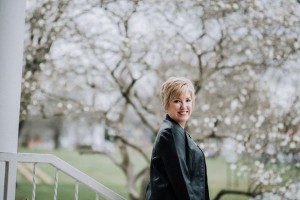 Life Style Intervention
Life Style Intervention
Dr. Linda Jager believes that we all deserve a vibrant life and that we each have the potential to
create this for ourselves. We know that the root cause of many of chronic diseases can be
helped with lifestyle intervention. By that we mean changes in what we eat, how
much we move, and our attitudes and outlook on life.
Dr. Jager uses a Functional Medicine approach to help you achieve your health goals.
Functional Medicine is a systems-oriented approach that engages both the patient and doctor
in a therapeutic partnership. Instead of treating just the symptoms of disease, Functional Medicine addresses the whole person. Many diseases have genetic, environmental and lifestyle factors that can influence long term health and disease progression. Most doctors are not adequately trained to apply strategies such as nutrition, diet and exercise to prevent or treat chronic illness. Functional Medicine practitioners are specially trained in these areas.
Principles of Functional Medicine
- Patient-centered care
- Health promotion, beyond just the absence of disease
- Individual, not protocol-driven, treatment plans
- Integrative, science-based approach to healthcare
- Attention to internal (mind, body, spirit) factors
- Attention to external (physical and social environmental) factors
- Integration with best medical practices
The Vibrant Health Approach
When treating cancer, a Functional Medicine doctor would agree that both radiation and other
conventional approaches are required, but then would also ask what else we can do as a patient-doctor partnership? And, how can we promote the patient’s underlying health issues? MostAmericans diets full of sugar and other unhealthy items, lack exercise, and are under chronic stress. Dr. Jager helps her patients implement changes to have the best chance of healing. A critical part of this type of care is to develop a health plan that the patient will embrace and adhere to.
Science is now proving what we all knew intuitively – that how we live, the quality of our
relationships, the food we eat and how we use our bodies determines much more than our
genes ever will. There are numerous strategies to combat or prevent cancer, including eating
well, exercising regularly, getting sufficient sleep, and controlling stress levels.
Interested? On Sunday, February 3rd from 4-5 pm Dr. Jager will be offer a free introduction to her Functional Medicine approach by reviewing the principles and strategies used in Functional Medicine. This class is located at the Genesis West Medical Center in the Borromeo Conference Room. If you cannot make this event, please call ICS at 563-421-1960 for future dates. Of, note, Dr. Jager also teaches a six-week lifestyle modification class on Sunday evenings. The last class for this session is February 10th. Call ICS for more details.
We look forward to seeing you.



 Dr. Jager has a diverse medical background in family medicine, wound care, emergency room care, pathology, functional and palliative care. She uses her experience in functional medicine with her patients at ICS. Functional care is an individualized, science-based approach that addresses the root cause of disease. It leverages the patient’s genetics, lifestyle, and biochemical components to personalize treatment plans including lifestyle modifications, stress reduction, and dietary changes to promote optimal wellness.
Dr. Jager has a diverse medical background in family medicine, wound care, emergency room care, pathology, functional and palliative care. She uses her experience in functional medicine with her patients at ICS. Functional care is an individualized, science-based approach that addresses the root cause of disease. It leverages the patient’s genetics, lifestyle, and biochemical components to personalize treatment plans including lifestyle modifications, stress reduction, and dietary changes to promote optimal wellness. 

 If your friend or loved one was diagnosed with cancer and you want to be supportive, but are afraid you may say or do the wrong thing, you are not alone. To help with the guesswork, we have a few helpful suggestions.
If your friend or loved one was diagnosed with cancer and you want to be supportive, but are afraid you may say or do the wrong thing, you are not alone. To help with the guesswork, we have a few helpful suggestions.




